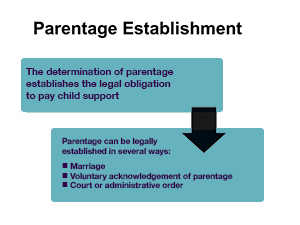New Jersey clarified when a court can order an adult child of a failed marriage to submit to DNA testing to resolve issues of paternity.
The decision relies on New Jersey’s Parentage Act, which sets the parameters for court-ordered genetic testing. At issue is how the best interests of the child might affect the right of a divorcing husband to seek DNA testing when his 20-year old son, his mother and her former lover all object to testing.

The New Jersey Supreme Court ruled that the Parentage Act did not intend that a determination of the best interests of the child — especially of an estranged adult child — provides enough reason to test for paternity. If there is evidence of and a reasonable possibility that the husband is not the father of that child, the emotional and financial impact on the child’s life may not be good cause enough to prevent court-ordered DNA testing.
The Court concluded that although relevant, the impact of testing on the child is just one of several factors in finding good cause. Trial judges have discretion in determining good cause, depending on the unique factors of any marital or paternity dispute. These factors include:
- Timing of relationship and approximate conception of the child
- The facts surrounding when and how the father discovered his possible non-paternity
- The relationship between the child and the presumed father and with any alleged father
- The child’s age
- The impact of learning the truth about paternity on the child
- The child’s interest in knowing family and genetic background, including medical and emotional history
Ordering a test to establish or confirm paternity is a complex issue with profound repercussions on a marriage and family relationships. Only an experienced matrimonial attorney can counsel you whether to seek such an order as a spouse or on behalf of a child, or to contest such an action if you are the defendant. For more information or to meet with one of our attorneys regarding your upcoming child support case, give our office a call at 973-710-4366.






